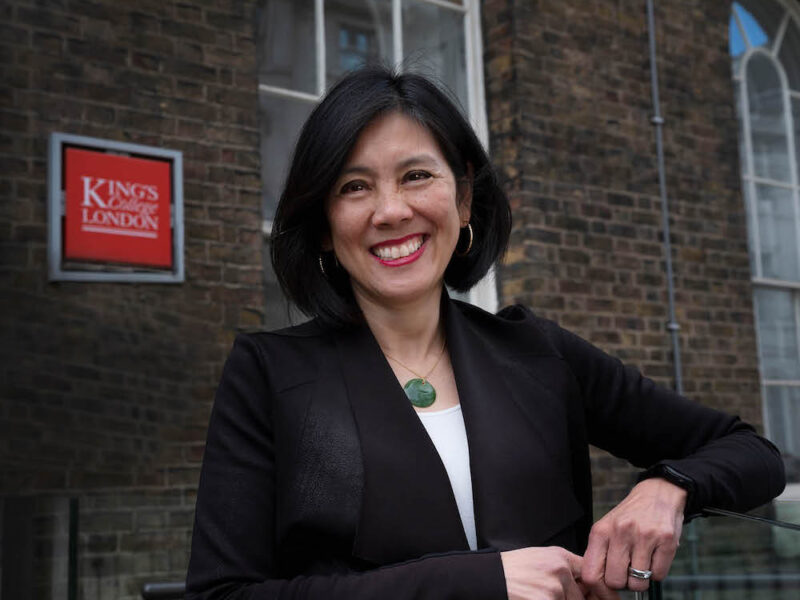
Summer 2023
Show Leadership at Any Stage: Leadership Lessons
Lan Tu AKC (Mathematics & Chemistry, 1989) is an independent member of the College Council and was appointed Vice Chair...
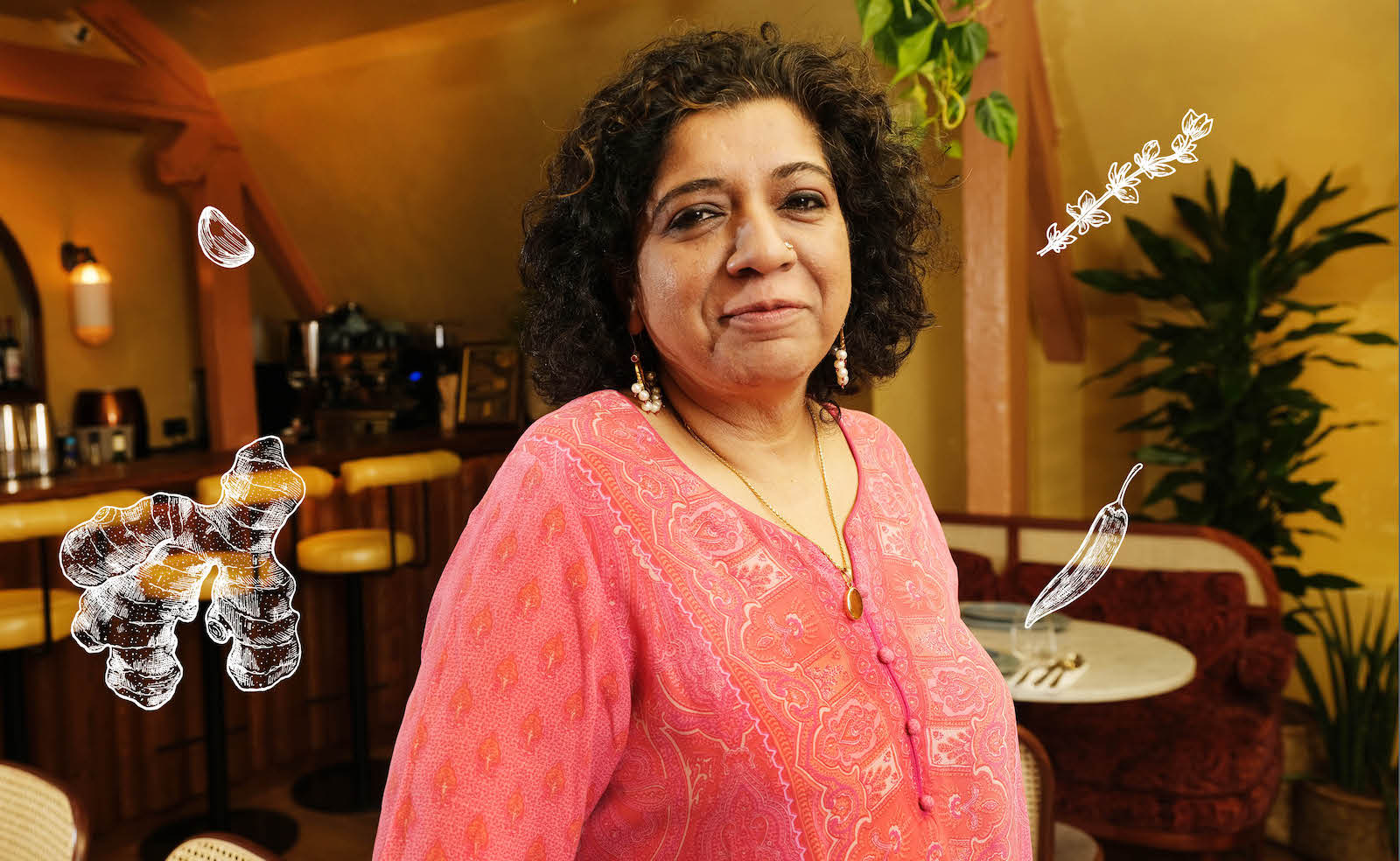
WHAT I’VE LEARNED
Read time: 7 mins
Dr Asma Khan (Law, 1999; PhD Law, 2013) is the chef and founder-owner of award-winning restaurant Darjeeling Express in London. Born in India, Asma moved from Kolkata (then Calcutta) to Cambridge in 1991 at the age of 22, then to London with her husband Mushtaq, an academic, and their two sons.
Asma began her food career in 2012 with a supper club in her home. Five years later, Darjeeling Express opened its doors, with an all-women kitchen, made up of women of Indian heritage who were trained not by the industry, but by their mothers at home.
In 2019, the Evening Standard listed her as one of the capital’s most influential people, while Business Insider put her in the top spot on their list of the 100 coolest people in food and drink. In 2020, Asma was the first chef to feature on Vogue’s list of 25 most influential women of the year, and she has appeared in the GG2 Power List, profiling Britain’s 101 most influential Asians.
In January 2023, after a successful two years in a Covent Garden setting, Asma and her Darjeeling Express team returned to Kingly Court in Carnaby Street, where they’d first opened. The newly refurbished space is now much bigger and has an open kitchen that doesn’t hide her all-women kitchen team away.
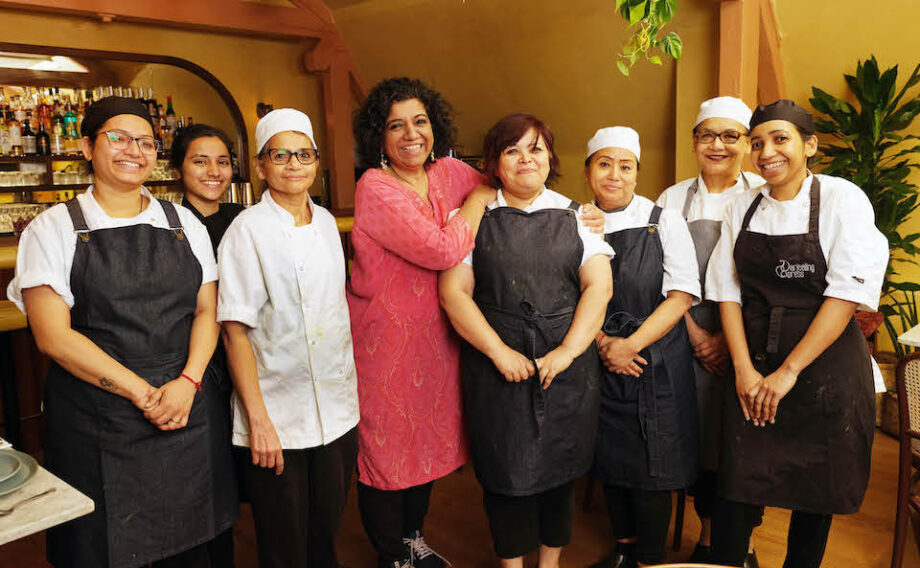
Asma and her all-women kitchen team
InTouch Online visited Asma at Darjeeling Express to talk about her time at King’s, making the transition from law to cooking and addressing gender inequality in the hospitality sector.
‘I was offered a place at Cambridge, but I knew that King’s was the place for me. It felt so vibrant and at the centre of everything. I was a mature student and being older than a lot of my classmates was something that initially worried me, but as it was everyone’s first time studying law, we all built up a very close relationship and spent many happy hours together in the beautiful Maughan Library.’
‘It wasn’t a deliberate career choice to switch from law to cooking. The journey from law to restaurateur was an organic one and at every stage I was using the skills and knowledge I learned in law school. Not just in negotiating contracts but also in a much deeper understanding that change can happen not just in a courtroom but by an individual breaking down barriers.
‘Towards the end of my PhD, I faced the usual choices of going into academia or a legal research role, so I thought that while I decided what I wanted to do, I would cook.’
The journey from law to restaurateur was an organic one and at every stage I was using the skills and knowledge I learned in law school.
Asma started in her own home while her husband was away for work. She would invite friends – nannies and housewives she’d met at her children’s school who were also immigrants – to come and eat with her. Like her, many of them were extremely homesick.
‘We couldn’t change Britain, especially not the weather! But we could at least enjoy the comfort food of our childhoods.’
The dinner parties became supper clubs and word spread. Before long, there were too many people to fit into her home, so she moved to a highly acclaimed pop-up restaurant in a Soho pub and then to Darjeeling Express, taking the women from the supper clubs to work with her in the kitchen.
Today, the all-women team is the signature of the restaurant. None of the women have trained in professional kitchens; rather, they are the home cooks who prepare the meals in South Asian households.
‘All of them learned to cook in the same traditional way I did – by watching other women cook in our families. Although many of them had never eaten some of the dishes they now make, they used the multitasking, intuition and observation skills gained from cooking every day for their loved ones to help them learn these dishes very quickly.’
All of the women in my kitchen learned to cook in the same traditional way I did; by watching other women cook in our
families.
The result is nourishing home-style food cooked with love.
‘The dishes we make are a homage to my royal Mughlai ancestry and the busy streets of Calcutta, where I grew up. They also include celebratory dishes served in my family for festivals and weddings. The traditional Calcutta-style Dum Biryani, which we serve at our Biryani Supper Club events, is my most treasured recipe. This gorgeous dish has been perfected and handed down to me by my family cooks.’
Asma owes a great deal to her mother, Faizana, who passed on many of her favourite recipes. She credits Faizana with teaching her the importance of generosity and patience when cooking. Faizana ran her own business in India and often hired women who had been abandoned by their families.
‘It is my lived experience that a collective is always stronger than an individual. My mother has been my greatest inspiration, as I watched how she took the time to help women and I saw how it made her feel.’
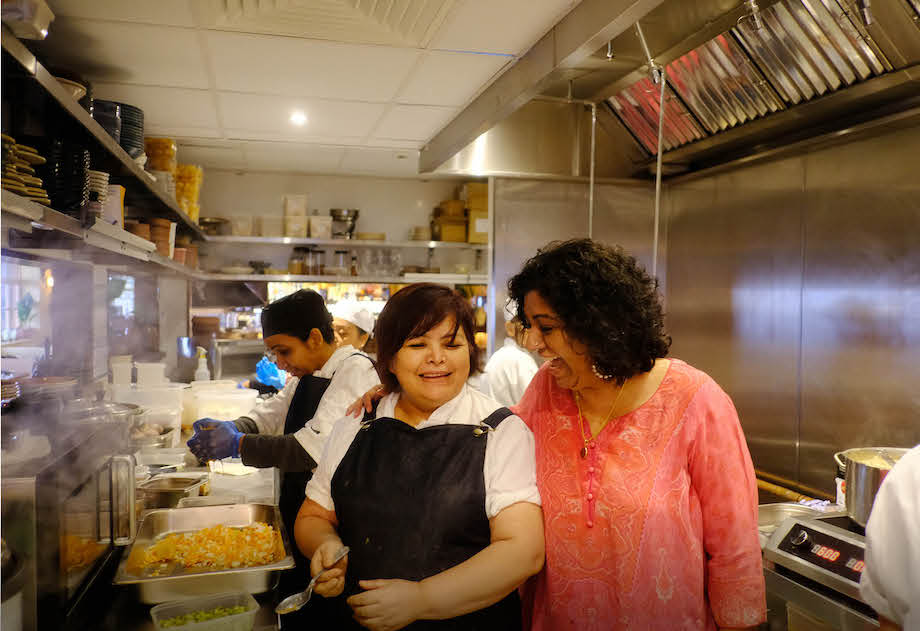
Asma is very hands-on in the kitchen
It’s easy to see the influence this would have on Asma. The passion to lift up the women around her, to make them feel appreciated and respected, runs through everything she does. Diners who come to the Kingly Court restaurant can see her all-female brigade working together, laughing and singing as they prepare the dishes in the open-plan kitchen.
With women still woefully under-represented in the top kitchens, letting her team be seen was vitally important to Asma.
‘It’s so important to see women in this space. For too long, women have been hidden behind walls and seen as less important than men in this industry. When I began 10 years ago, you didn’t see anyone who looked like me in restaurants or on television. This is slowly changing, but only at the fringes where you do see the occasional woman in a male-dominated kitchen. It is still very rare to see a restaurant where the majority of the chefs are women. It is even more rare to see a head chef who is a woman.’
It’s so important to see women in this space. For too long women have been hidden behind walls.
The statistics, regrettably, bear this out. When it comes to women in the hospitality industry, the most recent count shows that just 17 per cent of professional chefs in the UK are women, and of the 57 per cent of women in the industry, one in four are in the most junior roles.
That cooking is seen as a stereotypically female area, but men are still dominating in leadership positions and higher-status areas, is an irony not lost on Asma. It’s something that she feels compelled to speak up about.
‘Although we do have some very well-known female chefs in the UK, they don’t talk about the gender inequality within our sector. It is very important for us as an industry to discuss this and help to initiate change.
‘At Darjeeling Express, we make sure that people feel valued. I am very aware that our restaurant is seen by many women and people of under-represented communities as an inspiration. I am grateful for the opportunities I get to speak about our ethos as I hope it will encourage more people to embrace change and be proactive.’
Our restaurant is seen by many women and people of under-represented communities as an inspiration. I am grateful for the opportunities I get to speak about our ethos.
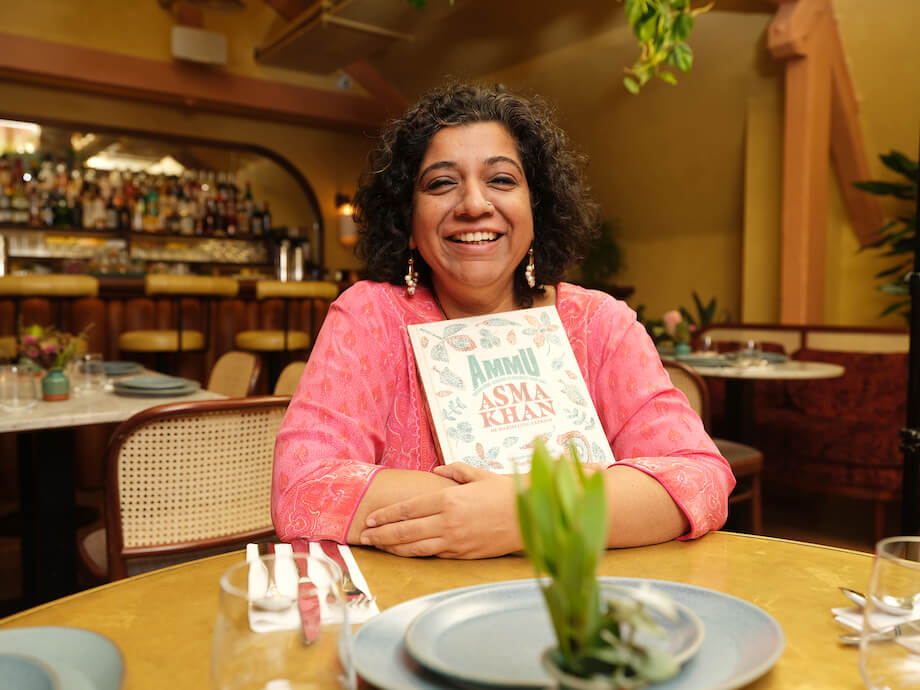
Asma’s second cookbook, Ammu, is a collection of recipes from her childhood and her Indian family kitchen
And with that, it’s time for Asma to prepare for the lunchtime sitting. She’s welcomed restaurant critics, politicians and Hollywood A-listers through her doors, but will she dish the dirt on her least favourite celebrity diner?
‘My least favourite diner is a person who is disrespectful to the person serving them. There is no space at Darjeeling Express for people who bring their ego to the table and look down on someone who is serving. My favourite celebrities have been those who have come in with humility, enjoyed the food and behaved with no arrogance, honouring the women who cook.’
As a proud King’s alumna with an astonishing commitment to give back to society and educate the next generation of change-makers, Asma is a fantastic example of someone truly living the King’s ethos.
Asma’s second book Ammu is a joyful celebration of the universal power of food to restore and to comfort. The book has 100 recipes divided into five chapters for each decade of her life – from dishes that celebrate her childhood, to what she cooks for her children in London today. It is a tribute to Asma’s mother, to simple home cooking, and to an exploration of the inextricable link between food and love.
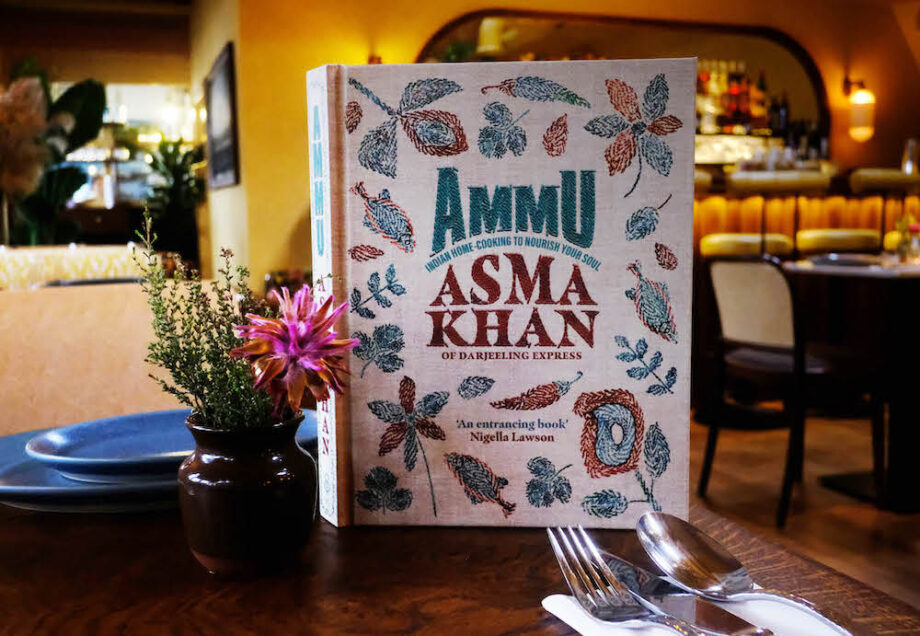
InTouch Online is giving away five signed copies of Asma’s cookbook, Ammu to our readers. Complete this issue’s quiz to be entered into the prize draw.

Lan Tu AKC (Mathematics & Chemistry, 1989) is an independent member of the College Council and was appointed Vice Chair...

Philip Crowther (Hispanic Studies, 2006) is a renowned journalist and polyglot. He is the White House Correspondent for France 24...